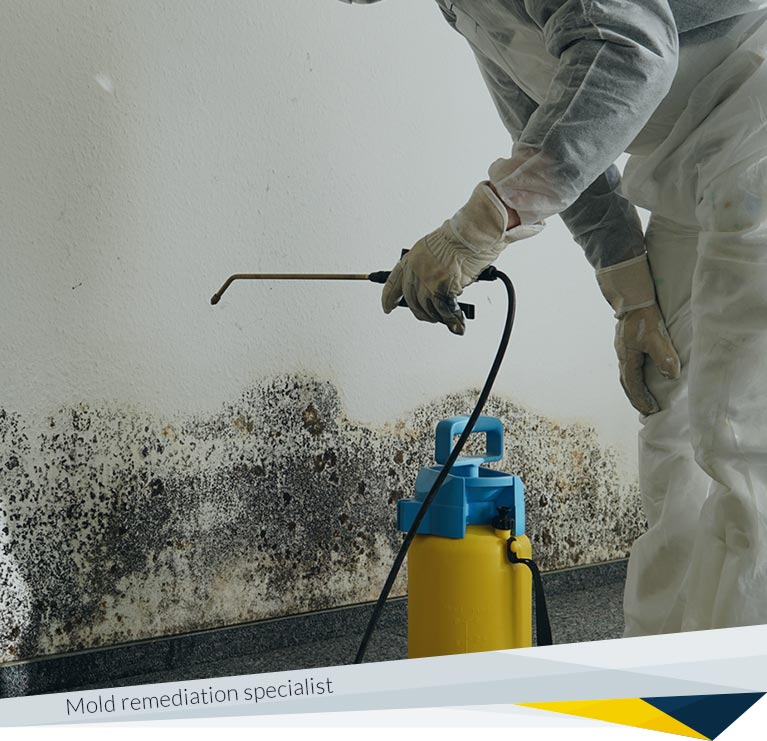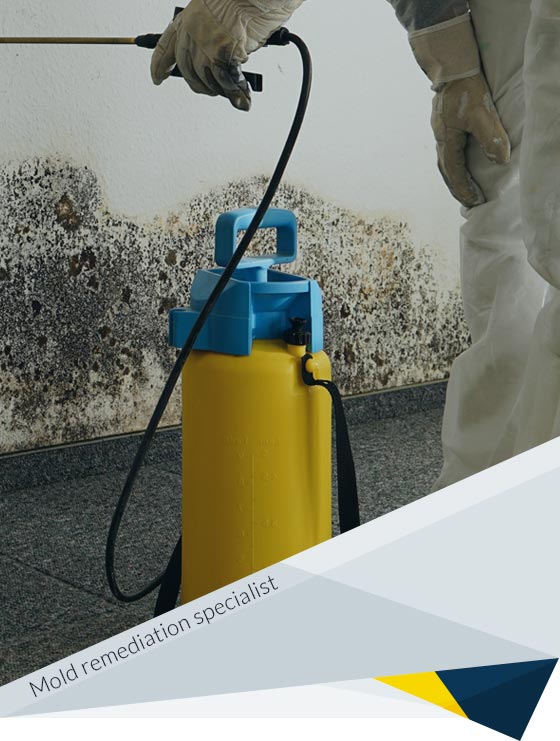
Mold spores are like tiny seeds, floating through the air until they land somewhere. Think about planting seeds in the ground. If the conditions are right, with moisture and nutrients, then the seed will sprout and grow. Mold works the same way, so if the place the spores land is good and moist, mold can start to grow, spread, and make more mold spores. All it needs is time, and you can have a big problem on your hands.
Mold spores are always present in the air, but they only grow when given the right conditions. Mold needs four things to grow: oxygen, a food source, warmth, and moisture.
Oxygen is needed for mold spores to germinate and start growing. Once they have started growing, mold produces enzymes that help break down organic matter so it can be used as a food source. Mold also needs warmth to grow, which is why you often see it growing in damp, warm places like bathrooms or basements. Finally, mold needs moisture to grow. This can come from humid air, leaks, or standing water.
Mold needs three things to grow:

Mold can grow on many different surfaces, including wood, paper, carpet, food, and insulation. Mold spores are present in the air and can land on any surface. When mold spores land on a wet or moist surface, they can start to grow, and the object can become visibly moldy. Worst of all, mold is extremely destructive. Mold growing on food causes it to rot. Mold growing on insulation can cause it to deteriorate and break down. Mold growing on wood can cause the wood to rot. Mold growing on carpet can cause the carpet to stain, not to mention also smell really bad. Mold growing on paper, like books, can ruin the books completely.
To sum up, mold can grow on any surface that is wet or moist. When mold spores land on such a surface, they can start to grow and will continue to do so as long as the moisture remains.
There is a 4th thing that is required for mold to grow, and that is time. Let's say a pipe leaks and the wall is wet. As long as the water is cleaned up and the materials dried within 24-48 hours, you have a pretty good chance of preventing indoor mold growth.
Indoor humidity levels can also increase temporarily without risking mold growth. This is like after showering, or cooking. That's why the oven hood and the exhaust fan in the bathroom exist, to help get the increased humidity out of your home before it can cause harm.
Mold can cause a variety of health problems, including allergies and respiratory infections. Some people are more sensitive to mold than others. mold spores can irritate your nose, eyes, throat, and lungs. They can also cause shortness of breath, wheezing, coughing, and chest tightness. People with mold allergies may have more severe reactions. Mold can also cause asthma attacks in people who are sensitive. Mold exposure can irritate the skin. In people with chronic lung illnesses such as COPD, mold can cause serious lung infections.
Mold is also linked to some neurological conditions, such as memory loss and depression. Mold can also weaken your immune system. If you have a mold allergy or are sensitive to mold, it's important to avoid exposure to mold spores. Some ways to do this include:
Mold often follows after water damage if the area affected was not dried quickly enough. If you have had water damage in the past, it can be well worth your while to get your property checked for mold. If you have any questions or concerns, you can consult with one of our mold experts and hire our team for professional mold remediation in your home or office. Call us today at 877-421-2614.

